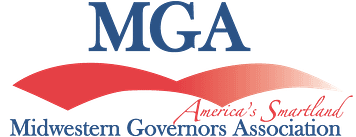The Smartland: Prepared, Agile and Empowered for the Future
Workforce, Infrastructure, Energy and Life
Technology’s profound and transformative impact on our society and workforce will not cease. In fact, its impact is increasing at such a rapid pace today that we can expect it to soon reach critical mass in the form of a disruption that will soon create jobs currently unimaginable. Ultimately, this disruption will lead to increased productivity and prosperity, but adjusting to it will require our region to retain and recruit the brightest minds and hardest workers, as well as leverage existing strengths in new ways.
To be prepared, Midwestern states must be on the forefront of anticipating change. The chair’s agenda will explore this challenge by looking at how education and training intersects with our region’s strengths in infrastructure, advanced technology, automation and energy, to allow the Midwest to be a premier location for success far into the future.
Toolkit
McKinsey & Company – What the future of work will mean for jobs, skills and wages
Pew Research Center – The Future of Jobs and Jobs Training
CNBC – Online College Degrees Save Money, Boost Careers
Forbes – The Jobs of the Future Don’t Require a College Degree
GettingSmart.com – Review: The future of jobs and Job Training
Business-Higher Education Forum – Investing in America’s data science and analytics talent
The Smartland: Prepared, Agile and Empowered for the Future Summit
The MGA hosted the The Smartland: Prepared, Agile and Empowered for the Future Summit in Columbus on September 19-20, 2018. This summit served as a capstone event and highlight what makes the Midwest great—the ways we are adapting education and workforce training, infrastructure, energy and quality of life assets to navigate and emerge stronger from the coming wave of disruption that emerging technologies will inevitably bring.
Agenda
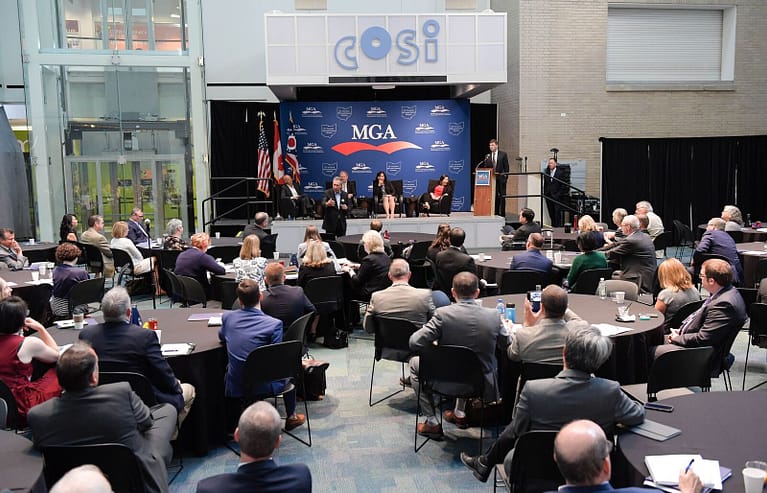
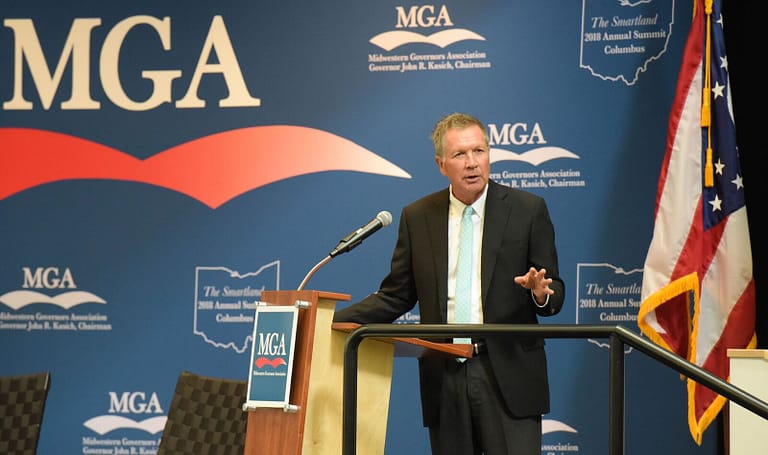
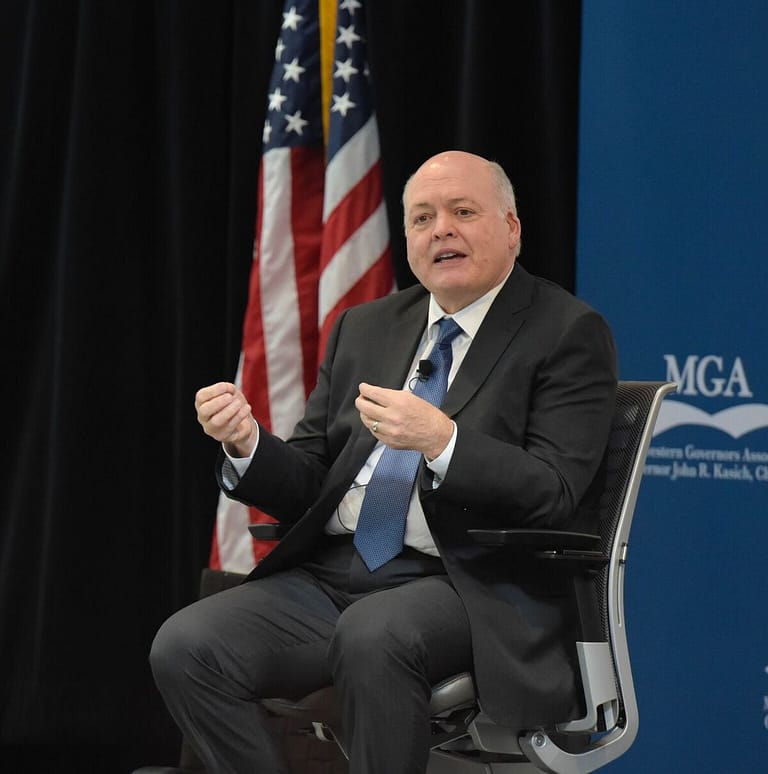
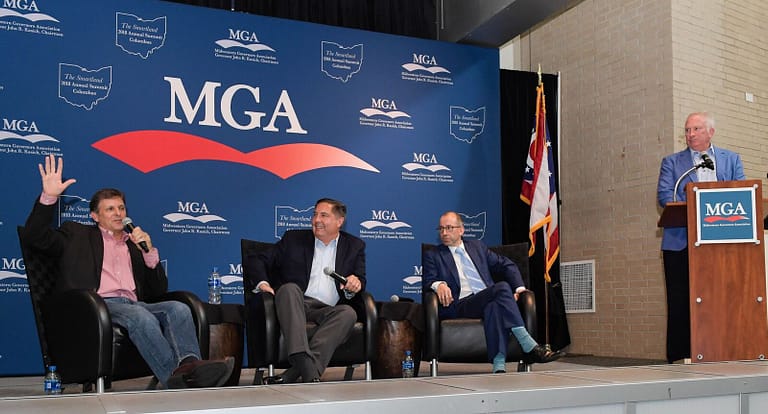
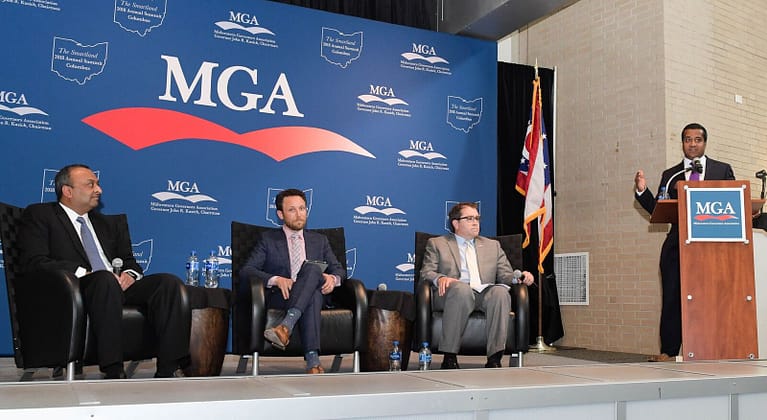
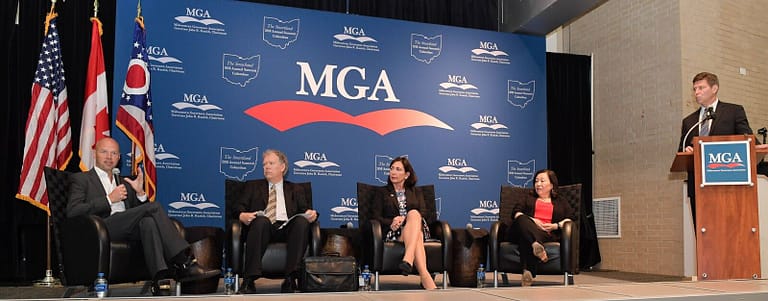
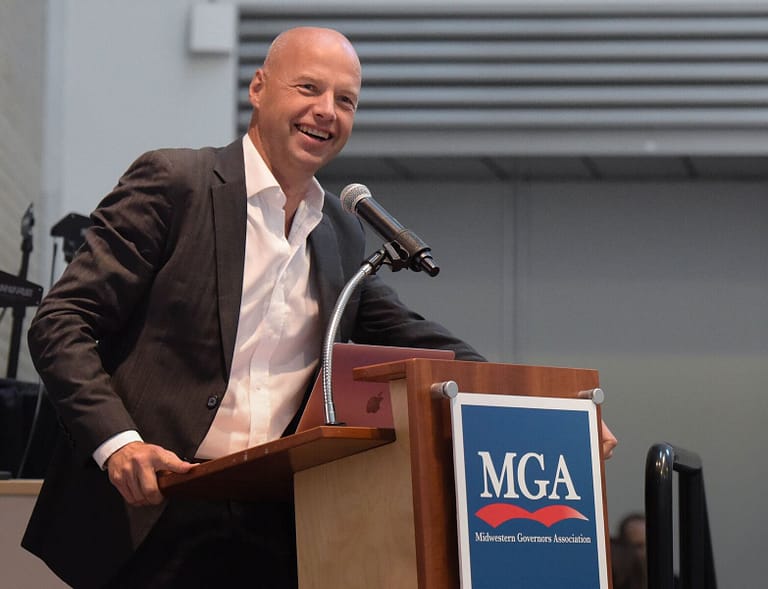
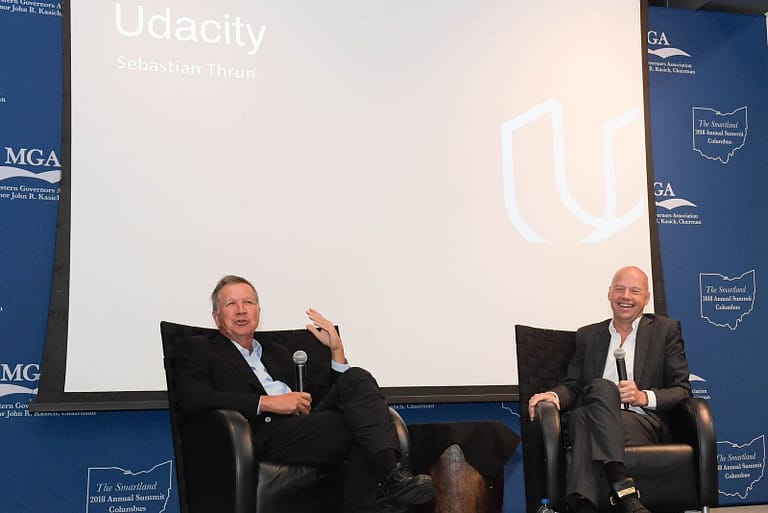

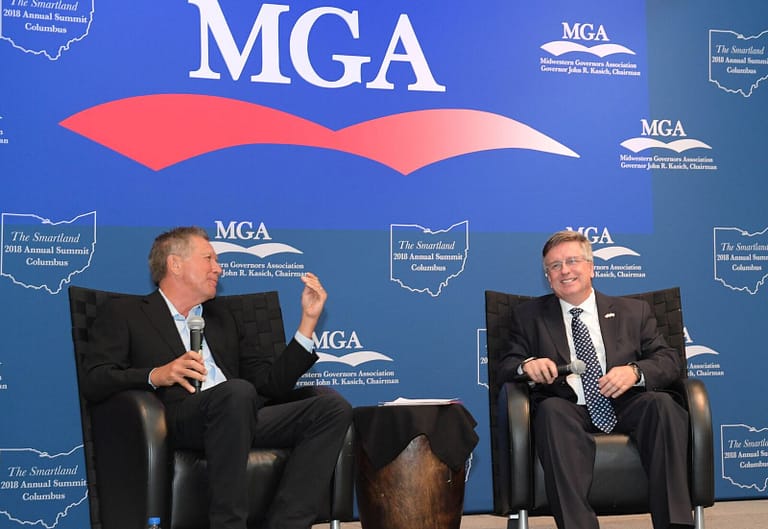
Photos credit: Office of the Governor
Summit Sponsors










Webinar Series
In the lead-up to the summit, the MGA will host a webinar series to highlight critical components of the chair’s agenda, including:
Technology
July 24th
What are the existing technology assets—networks, AI, data analytics, research centers—that we can strengthen and what do we need to add in order to compete with and surpass the global competition?
- Dr. John L. Martin, Director, Ohio Department of Developmental Disabilities
- Fred Judson, UAS Director, UAS Center, DriveOhio
- Nick Hegemier, P.E., Managing Director, Infrastructure, DriveOhio
Energy
June 26th
How does the Midwest’s diverse energy portfolio position it to power the jobs of the future and how will emerging technologies and regulatory requirements impact it?
- Nate Melby, Chief Information Officer, Dairyland Power Cooperative
- John Hemsely, Senior Director, Reserach & Analysis, AWEA
Infrastructure
May 22nd
What are the strengths and gaps in the Midwest’s transportation and digital infrastructure and how do we maximize our ability to be a hub for commerce on a global scale?
- “DriveOhio: All Things Smart & Connected” – Jim Barna, Executive Director, DriveOhio
- “Digital Connectivity as a Societal Enabler – Expanding Broadbrand in Ohio” – Stu Davis, State Chief Information Officer and Spencer Wood, Assistant Policy Director, Technology and Innovation, Gov. Kasich’s Office
Workforce Attraction
April 24th
How do we attract a highly skilled workforce and from where? We will look at how to grow our own workforce, as well as how to attract workers that are not local.
- Margaret Eaton, Executive Director Toronto Region Immigrant Employment Council
- Chris Truax, Chief Operating Officer, OhioHealth Marion General Hospital
- Dr. Ryan McCall, President, Marion Technical College
- Steve Fujii, Superintendent, Marion City Schools
Workforce Development
March 20th
What are the best ideas—in the Midwest and around the world—for most effectively rethinking education and training to better produce a workforce with the skills, competencies and credentials that meet the needs of future job creators?
